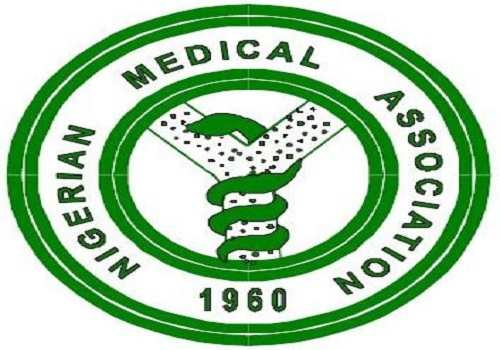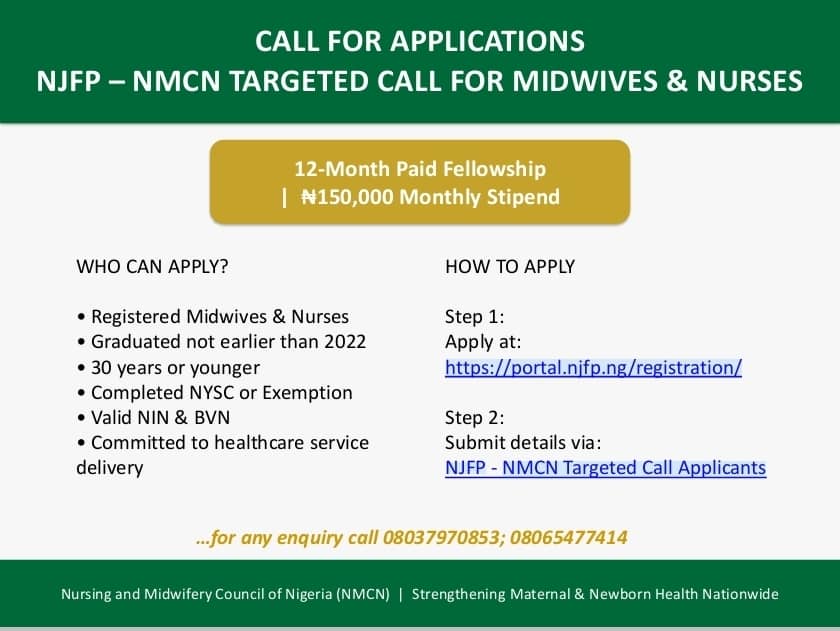West African Postgraduate College of Nurses and Midwives Position Paper on Nursing Consultancy Placement
1.0 BACKGROUND
Nursing as a discipline is diverse, has the largest work force in the healthcare sector and is one of the most respected of all the health care professions (WHO, 2020). There are more than One Hundred and Ninety-Nine Thousand (199,000) registered Nurses and Midwives in Nigeria alone (NMCN, 2021), and millions worldwide. Although the origin of Nursing predates the mid-19th century, the history of professional nursing traditionally begins with Florence Nightingale. According to the International Council of Nurses (ICN, 2020), the scope of nursing practice encompasses autonomous and collaborative care of individuals of all ages, families, groups, and communities, sick or well and in all settings.
By the mid-1950s, hospitals were the largest single employer of registered nurses. Other important changes in nursing occurred during the latter half of the 20th century. The profession grew more diverse with significant changes in nursing education. Dependence on hospital-based training schools declined, and those schools were replaced with collegiate programmes either in colleges or in universities. In addition, more systematic and widespread programmes of graduate education began to emerge. These programmes prepare nurses not only for roles in management and education but also for roles as clinical specialists and nurse practitioners.
The history of Nursing in Nigeria is intertwined with the general history of the profession worldwide and the history of the country. In 1930, the Midwives Ordinance which established the defunct Midwives Board was promulgated to regulate Midwifery education and practice in Nigeria. In 1947, the Nursing Council of Nigeria was established by the Registration of Nurses Ordinance of August 1947 to regulate and control the education and practice of Nursing in Nigeria.
From the humble beginning through the pioneering Midwives Ordinance of 1930 with its major Amendment known as the Midwives Act of 1966 to the first Nurses Ordinance of August 1947 and series of Amendment, such as Ordinances of 1957, 1959, the Nurses Act, No. 2 of 1970; the Nurses Amendment Act No. 30, of 20th July, 1974, what started as two separate bodies were merged together into one big effective body by the enabling decree 89 of 1979. Since then the Nursing and Midwifery Council of Nigeria grew and developed more and more in status, functions and responsibilities as well as influence and authority as one of the foremost statutory professional regulating body with the largest scope, jurisdiction and professional personnel to solely regulate the education and practice of Nurses and Midwives as well as maintaining standards for Nursing profession. Schools of Nursing, Midwifery and specialties were established and Nursing professionals were produced yearly to provide Nursing care to the general populace.
By 1965, a Department of Nursing was established in the University of Ibadan to commence a degree programme in Nigeria. Later on, University of Ife and University of Nigeria, Nsukka also started degree programmes in 1973 and 1983 respectively. As at 2005 there were only about ten (10) accredited Departments of Nursing in Nigeria Universities. However, with continuous encouragement, concerted efforts by many nurses and with support of the Management of academic institutions more Departments of Nursing have been established in Nigeria for higher education of nurses to serve as educators, managers and clinicians. There are currently thirty-five (35) accredited faculties/departments of Nursing in Nigeria Universities (NMCN, 2021).
With advanced technology, emergence of more disease burden, establishment of complex healthcare setting, there was need for the training of highly skilled manpower for effective provision and supervision of care as well as management of these care settings and resources. These gave rise to the establishment of West African College of Nursing (WACN) now West African Postgraduate College of Nurses and Midwives (WAPCNM) on 24th October, 1978 in pursuant of the Treaty of West African Health Organization and the Assembly of Health Ministers. The College was officially inaugurated on April 14th 1981 in Banjul, The Gambia, as one of the specialized agencies of the West African Health Organization (WAHO).
WAPCNM as an agency of WAHO established her fellowship programme to, provide postgraduate nursing and midwifery education and disseminate technical health information towards the attainment of the highest possible standards, and protection/promotion, of the health of the people of West Africa sub region through cooperation among member states.
The goal of the West African Postgraduate College of Nurses and Midwives, among others is to prepare both Clinical Nurse and Midwife Consultants/Specialists who would function in their leadership roles within the Nursing/Midwifery teams in the Sub-Region. Part of its mandate is to promote excellence in nursing and midwifery education and practice at the basic, post basic and postgraduate levels; and also, to promote and encourage research in the various fields of nursing and midwifery education.
Fellows of the WAPCNM are registered nurses and midwives in any of the member states who are at least degree holders in Nursing with 5 years post registration experience who have successfully completed the four (4) years postgraduate fellowship programme and passed the examinations prescribed by the College. A Fellow therefore, is a professional who has been prepared at a Post graduate level as a clinical nurse/midwife consultant/specialist with advanced knowledge and competencies to functions in a leadership role within the nursing/midwifery team as well as in the interdisciplinary team of the entire health system.
A Consultant Nurse is an advanced clinical nurse specialist practitioner who works in a variety of healthcare settings or environment and their roles and responsibilities are anchored on advanced education, advanced skills and competencies enabling them to provide expert professional care and services that cannot be offered by a nurse generalist and clinician (Dauda, Hadiza & Nelson 2015; Bloom 2018). A Consultant Nurse works ‘to promote superior standards of care and effective treatment’. They have extensive and highly specialized knowledge to ensure that nurses in a facility and their nursing care processes lead to the best care for patients and clients. A Consultant Nurse must have advanced education and clinical training (Bloom, 2018). A Consultant Nurse usually focuses on specialized clinical practice and patient care, teaching, management of nursing staff, administration of health system, consulting and research. Their roles start from the acute care setting and expands at the long term and palliative care setting (Bloom 2018; Dauda, Hadiza & Nelson 2015; Newhouse et al 2011).
2. 0 JUSTIFICATION
2.1 The Healthcare system is undergoing rapid changes that put new emphasis on population health, quality of care and the value of the services delivered. These changes present both opportunities and challenges to the One Hundred and Ninety-Nine thousand (199,000) Registered Nurses employed in Nigeria. There are about four times as many nurses in the health workforce than there are physicians. Nurses by their scopes of practice, diverse areas of specializations and numbers will play a significant role in the transformation of the health system and the achievement of the Universal Health Coverage (UHC).
2.2 In this redesigned healthcare system, Nurses are assuming expanded roles for a broad range of patients in ambulatory setting and community based long term care. New job titles and roles are emerging particularly in population health management, patient coaching, informatics design and analysis, geriatric, palliative, end of life and hospice care. These emerging and expanding roles for Professional Nurses will require the application of Nursing skills in new ways as well as doing things differently to achieve better outcomes. In some of these settings physicians’ attention may not be required on a daily basis but their attention can be called for when necessary or clients can be moved to the settings where specific medical management are required and then returned to the Skilled Nursing care facilities for continuous care and management. There is therefore need for highly skilled Nursing manpower to provide the services, supervise and train others to meet the healthcare needs of the population.
2.3 The development of Nurse led clinics, Skilled Nursing facilities as well as community and Home based care services managed by Consultant Nurses of varying specialization has been adopted globally as the best approach towards managing older persons and those with chronic diseases and conditions, thereby improving access to health care and freeing bed spaces in acute care settings for emergencies and acute conditions.
2.4 Nurse consultants are qualified nurses who have specialized in a chosen area of practice. They use their clinical background and education to provide medical information and medical advice to consumers of healthcare. These type of services provided by Nurse consultants are also referred to as Advanced Practice Nursing in some countries. The advanced practice nursing is provided by Nurses and Midwives who practice at a higher level of capability as independent, autonomous and expert advanced practitioners. The overall purpose of the service is to provide safe, timely, evidenced based nurse-led care to clients/patients. Nurses at all levels of healthcare require close monitoring, effective supervision and continuous mentoring in order to meet up with the challenges of emerging diseases and the increasing patient awareness regarding the quality of care, advanced technology in healthcare, designing of policies for strengthening nursing care and healthcare leadership, hence the need for Nurse consultants.
2.5.Developing a pool of Consultant Nurses will contribute to national and global nursing practice and healthcare policy development (International Council of Nurses 2021).
2.6. The Fellowship of WAPCNM is the highest professional designation of any Nurse in West Africa, and it is required provision of high-quality healthcare and for the career advancement of Nurses and Midwives. Fellows work both independently and in collaboration with other health care professionals such as physicians and supervise the work of professional nurses and others who have limited licenses such as the Community Nurses and Midwives. Fellows of the WAPCNM have areas of specialization in Medical/Surgical Nursing, Maternal and Child Health/Reproductive Health Nursing, Mental health and Psychiatric Nursing, Community Health Nursing, Nursing Administration, Management and Education. The aim is to provide better outcome for patients by improving services and quality of healthcare. They are expected to provide quality healthcare services in critical areas especially in the areas of need.
3.0 COMPETENCIES OF THE CONSULTANT NURSE
A Consultant Nurse who has successfully completed the fellowship programme of the West African Postgraduate College of Nurses and Midwives shall have the ability to:
1. Provide healthcare consultation and technical advice to patients/clients at the institution, family and community settings.
2. Provide specialist nursing care in accordance with the principles and concepts of the nursing process and other scientific approaches to care.
3. Manage Nurse Led Clinics and Care Facilities for Community care, Family Health care, Aged/ longterm, palliative and end of life care.
4. Practice nursing/midwifery with extended autonomy and higher level of accountability
5. Coordinate, plan and manage care in his or her area of specialization with the multidisciplinary health care team.
6. Manage full episodes of care and complex healthcare problems including hard to reach, vulnerable and at-risk populations.
7. Manage and oversee care given by the nurses to clients and patients to ensure it meets national and global standards.
8. Consult with Nursing groups about problems and challenges of professional education and practice.
9. Provide consultation services to governmental and non-ministerial agencies on safe and good quality nursing care and services for improved health care delivery and national development.
10. Manage health projects and programmes.
11. Coordinate clinical education training and programmes for professional development
12. Plan and manage strategic media and advocacy communication campaigns and train colleagues to influence policy makers and generate supports on critical issues.
13. Integrate research (evidence informed practice), education, leadership and clinical management.
14. Assume leadership positions in nursing education, administration, research and clinical practice.
15. Plan, develop and implement nursing and health programmes with other team members at primary, secondary and tertiary levels of the health system.
16. Participate in policy and decision making on health and nursing issues at local, national and international levels.
17. Provide consultancy and advisory services to local, national and international health organizations and agencies on the development and strengthening on healthcare delivery system.
18. Initiate and consult with others to plan, organize and carry out research to solve nursing, health and management problems.
19. Participate in the education of Nursing students, Nurse Interns and other healthcare personnel.
4.0 DUTIES AND ROLES OF A CONSULTANT NURSE
4.1 Consultant Nurse/Midwife Grade Level 15
• Practice in his or her area of specialization for improved service delivery
• Educate patients/clients, communities and non- nursing personnel
• Perform advanced assessment of patient/ clients
• Order tests and procedures
• Diagnose behavioural and mental as well as substance use or addictive disorders and diseases, treat and manage illness states
• Provide acute, subacute and longterm interventions and therapies for older adults in Gerontology setting and independent specialized nursing facilities
• Write prescriptions.
• Perform interventions that enable patients/clients to achieve physiological and psychological goals
• Employ treatment and therapeutic devices such as oxygen, mechanical ventilation, prosthetics and adaptive equipment.
• Employ and interpret interventions such as EKG interpretation, respiratory support,
• Monitor adults and older persons at risk for emergent conditions
• Coordinate referrals
• Serve as Project Manager for Health Programmes/Projects.
• Train, supervise and mentor Nurse-interns, Nursing staff, and West African Postgraduate College of Nurses and Midwives Residents
• Function as Case Manager
• Manage health problems and coordinate healthcare services with the multidisciplinary health care team
• Promotion of health using various community based interventions.
• Prevention of illness and risk behaviours among individuals, families, groups and communities.
• Actively participate in the development of policies and strategic plans in the healthcare system
• Coordinate nursing and midwifery clinical research and promote evidence based care for individuals, families and communities
• Mentor nurses and midwives in his or her area of specialization
• Engage in independent nursing practice in specialized Nursing setting such as aged care, palliative care, hospice care settings, among others.
• Work with patients/clients and families to develop individualized care plans for long term care
• Consult in independent Nursing facilities to provide counseling, clinical care, and education.
• Lead in developing family health interventions and maternity services through initiatives and improvement in the care of women, their babies and families.
• Promote and support human rights of women and babies.
• Influence clinical practice through education (formal and informal), mentoring and coaching in the multidisciplinary team.
• Use expert knowledge and clinical competence to facilitate clinical supervision
• Design standard operating procedures and clinical protocols for nursing care
• Serve as member of the Hospital Infection Prevention and Control Committee
• Serve as member of the Hospital/Facility Therapeutic Committee
• Understand and promote professional boundaries by referring to and collaborating with other members of the multidisciplinary health team.
• Lead in the translation of new knowledge and facilitation of best available evidence in the clinical setting.
• Initiate and design new health policies and programmes
• Provide consultation services to Governmental and non-Governmental agencies on safe and good quality nursing and midwifery care.
4.2 Consultant Nurse/Midwife Special Grade Level 16
• Perform the duties of Nurse Consultant/Midwife grade 15 at higher levels of responsibilities in areas of his or her specialty.
• Coordinate training programmes and projects for staff and institutions
• Lead in Health Research in facilities, Organizations and communities
• Serve as member of Health Research Ethics Committee
• Serve as member of the Medical Advisory Committee
4.3 Consultant Nurse/Midwife Special Grade Level 17
• Perform the duties of Nurse Consultant Special Grade level 16 at higher levels of responsibilities in areas of his or her specialty.
• Advising on the formulation, review and execution of policies and programmes on nursing and midwifery.
• Keep abreast with developments in Nursing and Midwifery at national and international levels and disseminate such information
• Participate in the formulation of laws guiding nursing and midwifery education and practice
• Take charge of the administration of Nursing Service Departments
5. 0 STRUCTURE OF THE PROGRAMME
• Primaries – 2 years at designated and accredited centers by WAPCNM Council, (In-depth knowledge and practical skills would be developed in clinical practice Pre-entry to demonstrate high level of clinical competence, leadership, research and technical expertise. This is domiciled at the Department of Nursing, University of Ibadan.
• Part 1 – 1 year of self –directed learning using course modules in specialty areas, including specialized residency/clinical posting and lectures supervised by nurse specialists/ nurse consultants in one’s own country.
• Part II – 1 year of clinically-based research project in the person’s specialty area.
6.0 ENTRY QUALIFICATIONS FOR CANDIDATES APPLYING FOR FELLOWSHIP PROGRAMME OF WEST AFRICAN POSTGRADUATE COLLEGE OF NURSES AND MIDWIVES (WAPCNM)
• Candidates must be registered with the regulatory bodies in the member countries (The Gambia, Ghana, Nigeria, Liberia, Sierra Leone, Cameroon, Burkina Faso and the Republic of Benin) and have current license to practice.
• Candidates must have B.Sc. /B.N.Sc. in Nursing and/or Midwifery degrees with a minimum of 5 years post qualification and proven working experience.
• Candidates with M.Sc./MPhil. in Nursing and/Midwifery or RN with registration as Advanced Practice Nurse (APN) and specialties in existing College faculties. However they should have a minimum of two (2) research-based articles published in reputable journals and must attend at least two WAPCNM relevant updates to qualify.
• Candidates with Ph.D in Nursing/Midwifery and specialties in existing College faculties and have at least two (2) research-based articles published in reputable journals and must attend at least two WAPCNM relevant updates to qualify.
6.1 INSTITUTIONS WITH SIMILAR PROGRAMMES AVAILABLE IN AND OUTSIDE NIGERIA
The West African Postgraduate College of Nurses and Midwives (WAPCNM) is similar to West African College of Surgeons (WACS), West African College of Physicians (WACP) and West African Postgraduate College of Pharmacist (WAPCP). All these four colleges are specialized agencies of West African Health organization and are under the umbrella of West African Postgraduate Medical College.
Other Institutions that offered Fellowship in Nursing similar to WAPCNM in other countries are:-
1. East, Central and Southern African College of Nursing (ECSACON)
2. Royal College of Nursing (United Kingdom),
3. American Academy of Nursing (USA)
7.0 PROPOSED ENTRY GRADE LEVEL AND ADVANCEMENT IN THE SCHEME OF SERVICE FOR CONSULTANTS NURSE/MIDWIFE
POSTS SALARY GRADE LEVEL
1. Consultant Nurse/Midwife 15
2. Consultant Nurse/Midwife (Special Grade II) 16
3. Consultant Nurse/Midwife (Special Grade I) 17
7.1 PROGRESSION /ADVANCEMENT
A Consultant Nurse/Midwife and a certified fellow of West African Postgraduate College of Nurses and Midwives can progress to Consultant Special Grade II after four (4) years and to Consultant Nurse/Midwife Special Grade I, after another four years.
8.0 CONCLUSION
The Fellows of WAPCNM like their counterparts from other Colleges have gone through various specialist areas and are poised to deliver advance nursing care with priority to improve patients’ outcomes as they are seasoned practitioners with the needed expertise. It will therefore be appropriate if they are employed as Fellows of WAPCNM Nurse Consultants in their chosen specialized areas. This will uplift their morale and also encourage others to pursue the fellowship programme being offered by the WAPCNM.
9.0 PRAYER
We therefore pray that the Post Graduate Professional certificate acquired by WAPCNM Fellows should be recognized and accorded Consultancy cadre in the Scheme of the Federal Civil Services as their Counterpart in West African College of Surgeons, West African College of Physicians and the West African Post Graduate College of Pharmacists.
Dr MOHAMMED YAKATUN
Executive Secretary, WAPCNM




